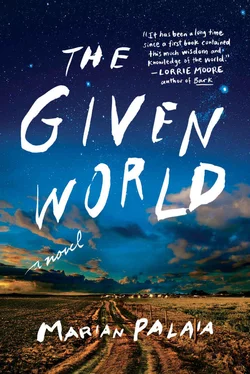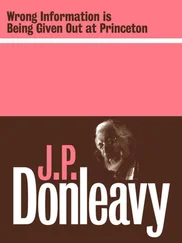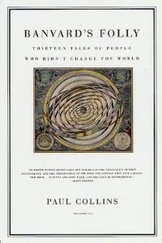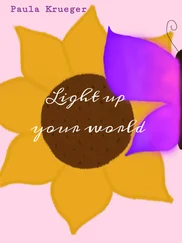Before he met Riley, Cole had never gone into the park, had not known of its many wonders or just how big it was, how many places in it a person could conceivably hide, and how unalike all those places were from one another.
“One minute,” he tells Lu, back at the bar, “you’re in Hawaii. Then Australia. Then the redwoods. Then—”
Lu breaks in. “Before you know it,” she says way too brightly, “you’re getting a blow job from some guy behind the fence in Queen Wilhelmina’s tulip garden. Under a wind mill.”
“Jesus, Lu,” Riley says. “Give the kid a chance.”
“Well, it’s true,” Lu says. “That’s what they do out there.”
“In a very small part of a very large park. You are such a cynic sometimes.”
Lu snorts.
Cole says, “Sometimes?”
“I am not cynical,” Lu says. “I am a realist.”
Riley shakes her head, does that oh-no-I-won’t-smile maneuver with her mouth and her eyes, and goes back to washing glasses. “Don’t you two have some trouble to get into somewhere else?”
Lu downs her brandy. “Come on, you little rat fink. We’ll find something. Let Glamour Girl here entertain the masses.”
It’s early afternoon. There’s no one else in the place. Cole hates leaving Riley alone, because he thinks it makes her sad. Sadder. But she sounds serious. And they won’t be gone long.
“Shot for the road,” he says, as if he is just another customer and his money is as good as anyone’s.
“Fat chance,” Riley says. “Nice try, though.”
Cole laughs. “Thanks, Mom.”
Riley raises her eyebrows. He tries again. “Thanks, baby.”
“You two make me sick,” Lu says. “Stop it right now.”
She and Cole leave arm in arm.
Lu says they should take the bus downtown, straight down Mission Street, all the way to the end. But first someone has to go back into the bar and get two dollars from Riley for the fare. That someone being Cole. Riley gives him ten bucks.
“Aren’t you going to tell me not to spend it all in one place?”
“Nope.”
“Cranky.”
“I’m not cranky, sweetheart. I’m tired. I’ll be better when you get back. Promise.”
“Okay.” He stands on the rail and leans over the bar, turning his not-quite-clean-shaven cheek toward her.
She kisses it. “Git,” she says. Behind the bar smells like limes and bleach and spilled liquor. He wonders if she even notices it anymore.
“Will you miss me?”
“How can I miss you if you won’t go away?”
“Ha,” he says. “That’s my line.”
“Mine now.”
He waits. She sighs, and her eyes are a little squinty. He still sees a light in there, though. “Yes, I will miss you.”
Outside, he finds Lu sitting on the curb with her back to a parking meter, smoking a cigarette with her eyes closed. The sun is out and the wind hasn’t begun to blow yet.
“Pretty day,” Cole says.
“What do you know about it?” She pushes herself up off the concrete, offering him the crook of her arm.
“Nothin’,” Cole says, certain it is the correct answer.
“That’s right,” Lu says, as they head down the hill to the bus stop.
The 14 arrives and they get on, finding seats together because this far south it is not jam-packed with bodies yet. As the bus crawls through the Mission, stopping at nearly every corner, more and more people board, and nearly all of them, when they speak, are speaking Spanish.
“Do you understand any of that?” Lu says.
“A little.” Because he is a California kid, Cole had Spanish in elementary school, and his mother would practice with him. “¿Cómo se llama?” she’d say. Some days he would be Roberto. Others, Antonio. Someone new every day. “¡Me llamo Zorro!” Leaping onto and then off the couch, into her arms.
He learned more in high school, before he dropped out. “La luz del porche está prendida,” he says to Lu. “Pero nadie es en la casa.”
“What?”
“The porch light’s on, but nobody’s home.” He cracks himself up. “Pretty good, huh?”
“La luz,” Lu says. “Nadie.” She looks over at him. “What did I just say?”
You said, “The light. Nobody.”
“How do you say blue?”
“Azul.”
She repeats it, stretching out the ooooh sound. “I like it.”
“There are more where that came from.”
“More what?”
“Colors.” He starts to name them.
“Easy, Buckwheat. Don’t overload me.”
“Right,” he says.
They are at the corner of Nineteenth and Mission. A man with a Detroit Tigers baseball cap and a red halyard around his neck that says “I ♥ Guadalupe” is standing next to the bus, under their window, and talking to himself, waving his scrawny arms around like a drunken orchestra conductor, though he does not look particularly drunk.
Lu says, “I wonder where old Lupe is.”
“What?”
“Lupe. Guadalupe.”
“I think it’s a place,” Cole says.
Lu says, “I don’t think so. I think Lupe went out to shit and the hogs ate her.”
“You’re so bad,” Cole says. “I don’t know what Riley sees in you.” He is kidding, but somehow it comes out as if he isn’t.
Lu doesn’t appear to be fazed either way. “She sees this,” she says, pointing to her chest. “She knows I’m all heart.”
“Must be nice.”
“Oh, buck up.” She graze-punches him across the shoulder. “It’s a lovely day.”
Cole looks out the window. He loves this street. To him it is one big carnival all spilled out onto the sidewalk. Cotton candy is the predominant smell, but also chile ristras, oregano, pot smoke, pee. Every single building has a storefront on the ground floor, and they are selling everything . Furniture, clothes, animals, produce, flowers, luggage, chicharrones, toys, appliances, stereos, Mylar quinceañera balloons. He thinks there cannot possibly be enough people in this seven-by-seven-square-mile city to buy all this stuff, but there it all is, and hundreds of people crowd the street, carrying pink plastic bags, pushing shopping carts, lugging chairs and boom boxes to god only knows where.
At Sixteenth Street he sees the junkies nodding out, their backs to the broken-down escalators, and rockheads searching the sidewalks, picking up anything small and white, hoping for a miracle. He turns to ask Lu if they really believe that any of those pebbles or bits of chalk or cigarette filters or scraps of paper are actually going to turn out to be something they can smoke, something that will make their ass-out lives feel worth living awhile longer, but she’s gone. He looks out the window again, sees her cross the street. He starts to get up, to follow, but the doors close, and he watches as the bus pulls away; Lu’s shoulders are hunched up around her ears — she knows he’s watching — and her head is down, but she finds her way to a group of young men, bunched up and slouchy on the corner, and they take her in like a long-lost cousin.
He does not get off at the next stop. A plan is a plan, and he is a little bit angry with Lu for walking out in the middle of their expedition. He knows Riley won’t be very happy when he comes back alone, but it’s hardly his fault. Lu’s a free agent; she can do what she wants.
Riley refers to Lu’s wanderings as her “trajectory,” as if Lu were a satellite, or a spaceship exiting Earth’s atmosphere. “There’s never a warning,” Riley says. No indication that the spur Lu is traveling on is about to end. Because then there’s a chance someone will try to stop her, talk some sense into her thick skull, and she’s not having any of it. Which is fine, Cole thinks. Riley’s got more than enough to keep her busy, as far as he’s concerned. The bar. The boyfriends.
Читать дальше












